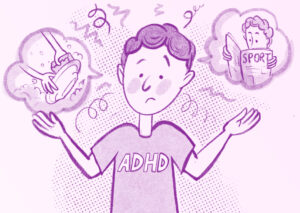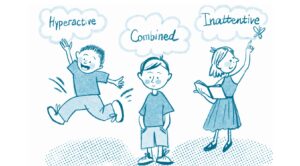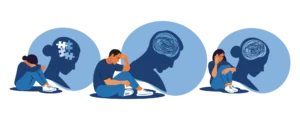Sleep and mental health are deeply intertwined. Just as a poor night’s sleep can leave you feeling irritable or foggy the next day, chronic sleep deprivation can contribute to a wide range of mental health problems. Likewise, individuals with mental health disorders often experience disrupted sleep patterns. Understanding this two-way relationship is crucial for achieving holistic well-being.
In this comprehensive blog, we’ll dive into the science behind sleep and mental health, discuss the effects of poor sleep, explore the relationship with specific psychological disorders, and offer tips to improve both.
Table of Contents
Toggle🔹 Why Sleep Is So Important
Sleep is not just a time for your body to rest—it’s a time for your brain to repair, reorganize, and recharge. During sleep, the brain consolidates memories, processes emotions, and clears out toxins that accumulate during the day.
There are four stages of sleep, including Rapid Eye Movement (REM) and Non-REM sleep. REM sleep, in particular, is critical for cognitive functioning and emotional regulation. When these sleep stages are disrupted, it can negatively impact your mental health.
🔹 The Bidirectional Relationship Between Sleep and Mental Health
One of the most fascinating aspects of the sleep-mental health connection is that it’s bidirectional—meaning each one affects the other.
- Poor Sleep Can Lead to Mental Health Issues: Long-term sleep deprivation increases the risk of developing anxiety, depression, bipolar disorder, and more.
- Mental Health Issues Can Disrupt Sleep: Mental health conditions like PTSD, depression, and anxiety can interfere with the body’s natural sleep rhythms, leading to insomnia or disturbed sleep.
🔹 Common Mental Health Disorders Linked to Poor Sleep
1. Depression
- Around 75% of people with depression have trouble falling asleep or staying asleep.
- Insomnia is not only a symptom of depression but can also be a predictor of future depressive episodes.
- Disrupted sleep can impair emotional regulation, making individuals more vulnerable to depressive thoughts.
2. Anxiety Disorders
- Individuals with anxiety often experience racing thoughts and physical symptoms (like a pounding heart) that prevent them from falling asleep.
- Sleep deprivation can worsen anxiety symptoms, creating a vicious cycle.
- Generalized Anxiety Disorder (GAD), Panic Disorder, and PTSD are frequently associated with insomnia.
3. Bipolar Disorder
- Sleep disturbances are a core symptom of bipolar disorder.
- During manic episodes, individuals may go days without sleeping. In depressive episodes, they may sleep excessively.
- These irregular sleep patterns can trigger or worsen mood swings.
4. ADHD
- Attention-Deficit/Hyperactivity Disorder is commonly associated with sleep issues such as difficulty falling asleep, restlessness, and shorter sleep duration.
- Lack of sleep can amplify symptoms like inattention and impulsivity.
🔹 How Sleep Affects Emotional Regulation
Your brain processes emotions during sleep. Poor sleep hampers the brain’s ability to assess and respond to emotional stimuli. For example:
- Amygdala hyperactivity: This part of the brain, which is responsible for emotions like fear and anger, becomes more active when you’re sleep-deprived.
- Prefrontal cortex impairment: This is the area responsible for rational thinking. With inadequate sleep, its functioning is diminished, reducing your ability to control impulses and manage emotions effectively.
🔹 The Role of Circadian Rhythms
Circadian rhythms are your body’s natural internal clock. They regulate the sleep-wake cycle and are influenced by factors like light exposure and melatonin production.
Disruptions in circadian rhythms—such as from night-shift work, jet lag, or erratic sleep schedules—can:
- Impair mood
- Increase risk of depression
- Decrease cognitive function
People with mental illnesses often have irregular circadian rhythms, contributing to both sleep and psychological issues.
🔹 The Impact of Sleep Medications on Mental Health
While medications like sleeping pills or antidepressants can provide short-term relief, they can also have side effects and may not address the root cause of sleep problems. Long-term reliance on these medications without addressing underlying issues could exacerbate mental health problems.
Always consult a healthcare professional for appropriate medication and therapy combinations.
🔹 Lifestyle Factors That Influence Sleep and Mental Health
Several lifestyle habits can impact your sleep and emotional well-being:
- Caffeine and alcohol: These substances disrupt sleep quality and REM sleep.
- Screen time: Blue light from devices interferes with melatonin production.
- Lack of physical activity: Regular exercise improves sleep quality and mental resilience.
- Poor diet: A high-sugar, low-nutrient diet can spike cortisol levels, disrupting sleep and mood.
🔹 Tips to Improve Sleep and Support Mental Health
- Stick to a Sleep Schedule
Go to bed and wake up at the same time every day—even on weekends. - Create a Restful Environment
Ensure your bedroom is cool, dark, and quiet. Remove distractions like phones and televisions. - Limit Screen Time Before Bed
Avoid screens at least one hour before sleep to reduce blue light exposure. - Practice Relaxation Techniques
Deep breathing, meditation, and progressive muscle relaxation can help calm the mind. - Get Sunlight Exposure
Natural light during the day helps regulate your circadian rhythm. - Exercise Regularly
Moderate physical activity can help you fall asleep faster and stay asleep longer. - Watch Your Diet
Avoid heavy meals before bedtime and reduce caffeine intake in the afternoon. - Seek Therapy or Counseling
If sleep problems persist, cognitive behavioral therapy for insomnia (CBT-I) is highly effective and often more beneficial long-term than medication.
🔹 When to Seek Help
If you consistently experience:
- Difficulty falling or staying asleep
- Feelings of sadness, hopelessness, or anxiety
- Irritability, fatigue, or difficulty concentrating
…it’s time to seek professional help. A psychologist or psychiatrist can help identify underlying mental health issues and develop a plan to restore both your sleep and emotional health.
🔹 Conclusion
Sleep is the cornerstone of good mental health. The connection between the two is undeniable—poor sleep increases the risk of mental health disorders, while those same disorders can disrupt your sleep.
By prioritizing sleep hygiene and seeking professional help when needed, you can significantly improve your emotional resilience, concentration, and overall quality of life. Taking care of your sleep is not a luxury—it’s a necessity for mental well-being.





